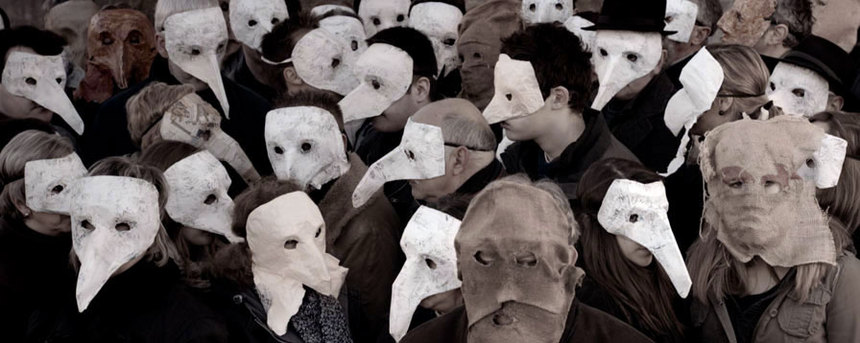MSPIFF 2013 Review: THE FIFTH SEASON's Apocalypse Hits Freakishly Close To Home

There is no denying that contemporary audiences are obsessed with the on-screen fantasy of all-out social breakdown. And with the exception of the poor humanoids being innocently victimized by interplanetary sadists, most cases involve our own maligned inventions retaliating and showing its teeth, sometimes literally. The popularity of the apocalypse, even if it is cinematic reverie, translates into an odd plebian embrace of good science that is otherwise dismissed as alarmist in the dailies. Zombies and mutant creatures may be pushing the envelope of what research is ready to support, but films like The Fifth Season that are a little more ambiguous about cause but very direct about effect hit freakishly close to home. Less than a month ago, a front page New York Times article outlined the unusual recent die-off of commercial honeybees, responsible not only for their sweet byproduct, but also the pollination of the world's fruits and vegetables. And just a few weeks before that, disturbing images emerged of thousands of dead pigs floating down Huangpu River into Shanghai. Both are the less-than-subtle indicators of a world out of balance and both are also unsettling touchstones from Peter Brosens and Jessica Woodworth's eerily prophetic 2012 slow-burn doomsday drama The Fifth Season.
The film opens in a quaint village in Belgium as it prepares to say goodbye to "uncle winter." None the wiser to eminent danger, the humble residences exude a consummate innocence isolated from the world's ills. Two teenagers frolic in the woods, sending each other playful owl-like mating calls until they locate one another; with earnest emulation a man attempts to coax his silent rooster, named Fred, into singing; and a young girl, in hopes of participating in the village's solstice celebration, practices the movements traditional line dance. A bonfire is being built on a pastoral hillside above the town, where a seasonal effigy in the form of a straw man will be placed and a town spokesman will "condemn winter" for another year. The entire village gathers with a pair of surreal larger-than-life puppets hosting the festivities, but as night descends and the crowd waits to warm themselves by the blaze, the tinderbox, 20 feet high and soaked in lighter fluid, fails to ignite.
Federico Fellini chronicled a similar sort of solstice celebration in Amarcord where the successful bonfire sparks the randy frolicking and untempered frivolity of the townsfolk. But that was Fascist Italy and oppression and death were more blatant realities; the 21st century is far more covert with its demons, and after the bonfire fails to light, winter does not go away and the colony collapse, of both bees and humans, comes in an aggregate of unforeseen cataclysms. Seeds planted in the fields lay dormant, the cows quit giving milk, and the bees, kept by resident philosopher and his disabled son, die in their hives. Economic collapse and environmental upheaval have a ripple effect on the people, prompting a sort of subtle deranged madness of a population pushed to the extremes. What follows is a much more sinister societal deluge where the "haves" are separated by the "have-nots," and the search for a reason digresses into a medieval witch-hunt, adorned with plague era masks and children's noisemakers.
Both Brosens and Woodworth, probably best known for their film Khadak, have multifaceted backgrounds in academia, fiction and non-fiction filmmaking, and prove they are a visual and intellectual force to be reckoned with. This film would be nothing if it wasn't for the controlled pacing and bar none camerawork that drops stunning images in your lap, one after another. Most of these shots with rigorous compositions from either a still or slow tracking camera come courtesy of the bucolic countryside. This sort of precision is matched by the restrained delivery of a trajectory that is less a downward spiral than it is a steady decline into a murky abyss. The effect is understated almost despite beautiful surreal moments and dark doomsday resolve. The Fifth Season starts very pleasantly and gradually turns the tables on you, going to places far darker than you might expect. When the tide does turn, it takes romantic idealism and torches it with callous disregard as well as impressive filmmaking mettle.







